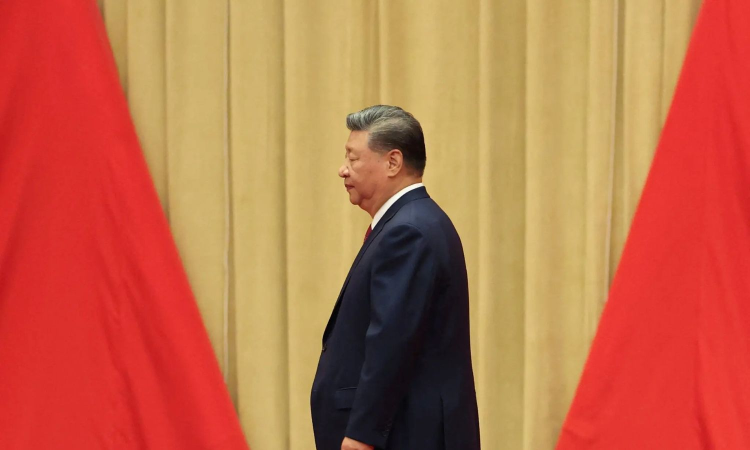Strategic stakes: Xi seeks leverage over Taiwan
Taiwan relies heavily on American political and military support, so any language suggesting weaker backing could be used by Beijing to set terms for future discussions.

Xi Jinping
When China’s leader, Xi Jinping, sits down with President Donald Trump to address worsening trade tensions, he will also be pursuing another goal: persuading Trump to soften US support for Taiwan.
Trump has said he wants to focus on trade when he meets Xi in South Korea, even if the Chinese leader raises Taiwan, the democratically governed island roughly 100 miles off China’s coast that Beijing claims as its own.
The meeting raises a key question: how negotiable is American support for Taiwan, especially given Trump’s sometimes dismissive comments about the island? Analysts said Chinese officials may seek to draw Trump out on the issue and have him clarify his position.
Xi probably wants Trump to state that the United States does not support independence for Taiwan. That would echo what previous US administrations have said but would still be welcomed by Beijing, which has accused Washington of encouraging Taiwan toward independence. Earlier this year, the State Department removed the phrase “we do not support Taiwan independence” from a webpage, prompting complaints from China.
Taiwan relies heavily on American political and military support, so any language suggesting weaker backing could be used by Beijing to set terms for future discussions. If Trump were to say that the United States “opposes” Taiwan's independence, that would mark a significant win for Beijing.
“Once something is said that helps China’s case, it treats that as the new baseline,” said David Sacks, a fellow at the Council on Foreign Relations. “They would try to lock in all successors to that precedent.”
For China, the South Korea meeting appears to lay the groundwork for a full summit between the leaders. Trump has said he plans to travel to China early next year and wants to host Xi in the United States.
“The Chinese probably do see a sequencing: first a ceasefire in the trade war and then opening up larger geostrategic issues,” Sacks said. “I think Taiwan is the centre of that.”
Since Trump took office this year, his administration has scaled back some dealings with Taiwan, which China strongly objects to. Washington refused to let Taiwan’s President Lai Ching-te make a stopover visit in New York and downgraded defence talks, relocating them from Washington to Alaska.
China believes US policy on Taiwan will evolve in its favour, said Amanda Hsiao of the Eurasia Group. “They see the potential for US commitments to Taiwan to weaken over time because of the shifting balance of power that increasingly advantages China.”
Trump has also complained that Taiwan spends too little on its military and dominates semiconductor production. Taiwan has pledged to spend more than 3% of its GDP on defence by next year, though Trump has said it should reach 5% or even 10%.
Trump has swung between questioning Taiwan’s ability to resist Chinese threats and boasting about US power to deter Beijing. Asked last week about a possible Chinese invasion of Taiwan, Trump emphasised U.S. military dominance.
“The United States is the strongest military power in the world by far,” he said during a news conference. “Nobody’s going to mess with that.”
Still, Trump may calculate that echoing President Bill Clinton’s 1998 statement in China — that the United States does not support Taiwan independence — could make Beijing more open in trade talks, such as over new controls on rare earth exports.
“For Xi, it’s critically important that Donald Trump at least communicates that he understands the Chinese position,” said Rorry Daniels of the Asia Society Policy Institute. “He needs to know that Trump is not going to surprise him on Taiwan.”
Taiwan’s foreign minister, Lin Chia-lung, downplayed concerns about what Trump might say when meeting Xi. “We are in close communication with the U.S. side, and their interactions with China won’t harm Taiwan,” Lin told legislators last week.
Secretary of State Marco Rubio dismissed the idea that Trump would make concessions on Taiwan in exchange for favourable trade treatment from China. “No one is contemplating that,” Rubio told reporters Saturday in the Middle East.
The New York Times



